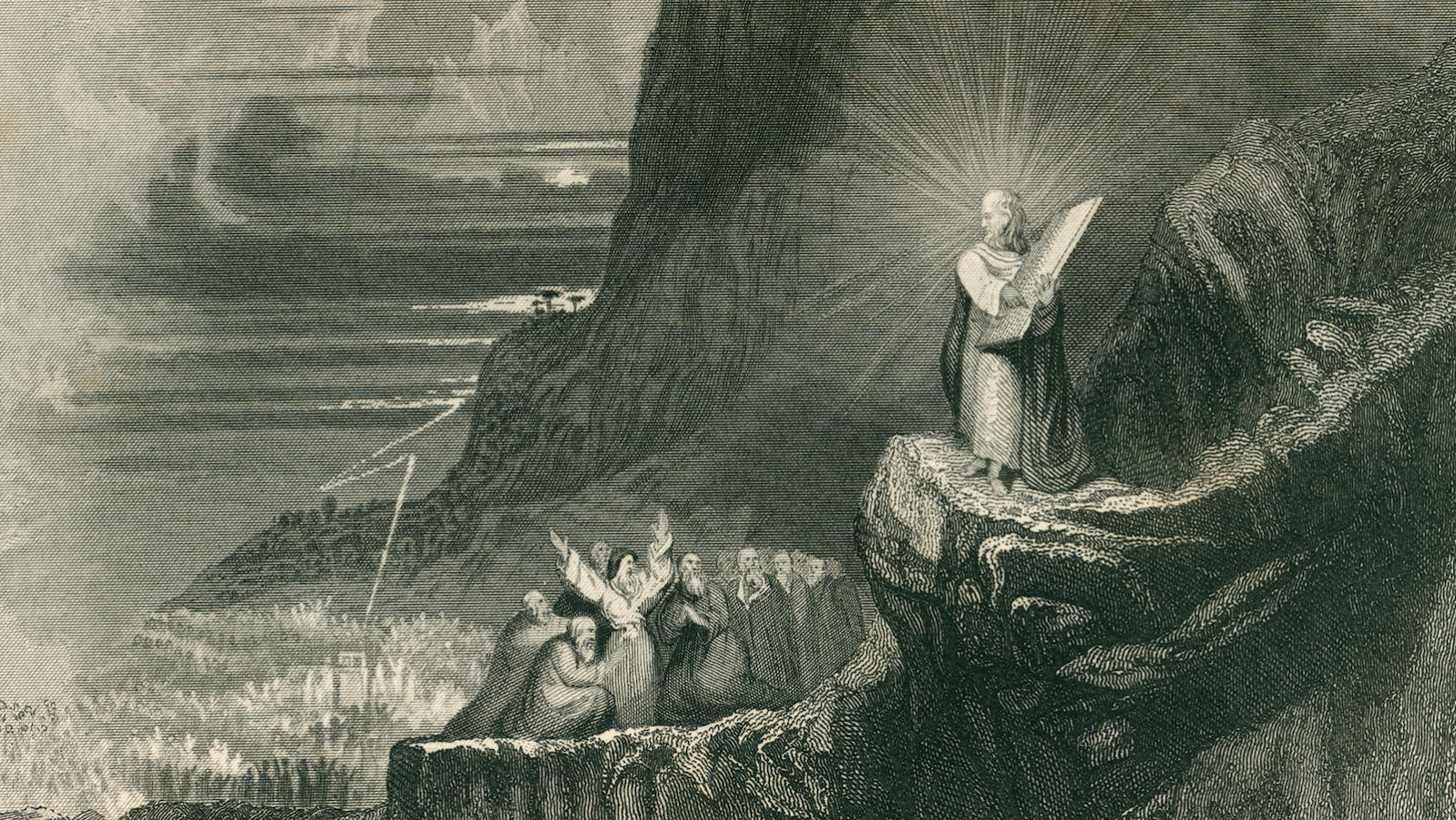Commentary on Parashat Vaetchanan, Deuteronomy 3:23-7:11
Most people read this portion and see it as painful evidence of the sometimes-harsh reality of life. Moses led the Israelites from Egyptian servitude to freedom. But he is unable to enter the Promised Land. He is not able to realize his lifelong dream, the one that carried him through the desert wanderings even when he lost confidence in himself and the entire nation of Israel.
This is what Moses tells us:
I pleaded with the Lord at that time, saying, ‘O Lord God, You who let Your servant see the first works of Your greatness and Your mighty hand, You whose powerful deeds no god in heaven or on earth can equal! Let me please cross over and see the good land on the other side of the Jordan, that good hill country, and the Lebanon.’ But the Lord was wrathful with me on your account and would not listen to me. The Lord said to me, ‘Enough! Never speak to Me of this matter again! Go up to the summit of Pisgah and gaze about, to the west, the north, the south, and the east. Look at it well, for you shall not go across yonder Jordan. Give Joshua his instructions, and imbue him with strength and courage, for he shall go across at the head of this people, and he shall allot to them the land that you may only see. (Deuteronomy 3:23-28)
However one may feel about God’s decision to prohibit Moses from entering the land of Israel, we realize that at some point in their lives, all leaders must turn the reins over to the next generation.
But God does not punish Moses. Rather, God gives him a gift. God takes Moses to the top of the mountain and shows him the future. Moses is able to see the entire land of Israel from that vantage point and all that will transpire in the future. He will be able to see the result of his labors–way beyond his years, further into the future than he would have been able to see had he been permitted entrance to the Land. This is not something that most of us are privileged to experience.

Help us keep Jewish knowledge accessible to millions of people around the world.
Your donation to My Jewish Learning fuels endless journeys of Jewish discovery. With your help, My Jewish Learning can continue to provide nonstop opportunities for learning, connection and growth.
Moses takes this opportunity to remind the people:
But take utmost care and watch yourselves scrupulously, so that you do not forget the things that you saw with your own eyes and so that they do not fade from your mind as long as you live. And make them known to your children and to your children’s children: The day you stood before the Lord your God at Horeb, when the Lord said to Me, ‘Gather the people to Me that I may let them hear My words, in order that they may learn to revere Me as long as they live on earth, and may so teach their children.” (Deuteronomy 4:9-11)
Moses teaches us the most essential lesson about life and about Jewish continuity. It is important that the people remember what they saw, for they experienced firsthand the miracles of Egypt and the desert journey. But even more importantly, they had to share with their children what they saw, what they witnessed and experienced. The dream continues through their children.
We who work with those on the periphery of the Jewish community understand this notion. As I often say, “Interfaith marriage is not the end of Jewish continuity. Not raising Jewish children is the end of Jewish continuity.” That was what Moses taught the people then and this is what we have to teach the community now. Through the sharing of transformative Jewish experiences–with our children, and with newcomers to the community — we continue the legacy gifted to us on the way to the Promised Land.



